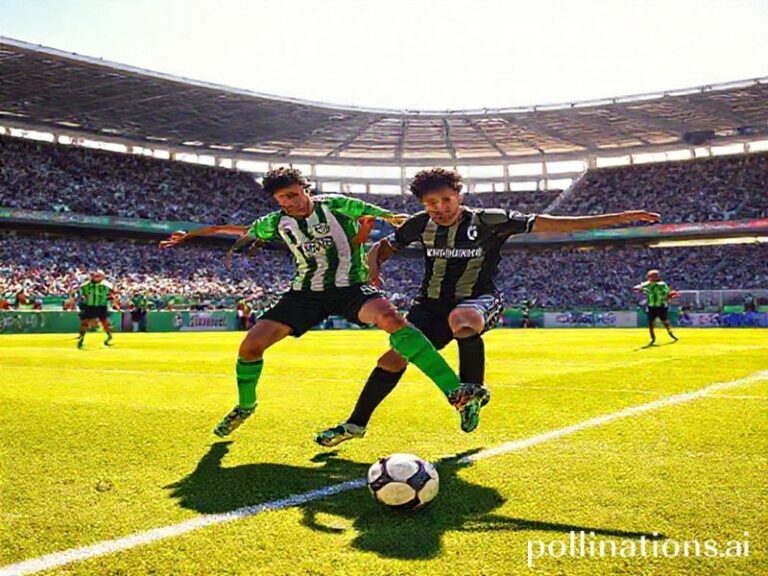Scotland’s 26-Year Qualification Drought: The World Cup’s Favorite Tragicomedy Keeps Us All Watching
Scotland’s Football Team: The World’s Favorite Tragicomedy
By Our Man in the Departure Lounge, somewhere between Reykjavík and regret
If football is the planet’s shared soap opera, Scotland is the long-running subplot that refuses to be cancelled—equal parts heartbreak, punchline, and existential warning label. While other nations merely play the game, Scotland has spent 26 years perfecting the art of nearly qualifying, a feat of sustained suspense that would make Hitchcock blush and therapists wealthy.
From São Paulo sports bars to Singaporean hawker stalls, the Tartan Army’s pilgrimages have become a kind of UN peacekeeping force in kilts: boisterous, beer-sodden, and improbably polite. They arrive singing 1970s power ballads, spend foreign currency like confetti, and leave local economies humming. The Scottish FA even markets this as “football diplomacy,” which is a polite way of saying they export emotional damage at scale but tip generously.
Globally, Scotland’s qualification drought is now older than Google, Brexit, and several TikTok influencers. In that same quarter-century, Iceland—population: one Reykjavík nightclub—has not only reached a World Cup but knocked out England, causing seismographs to giggle. Panama, whose league is sponsored by a cell-phone kiosk, debuted in 2018 and still managed to score. Meanwhile, Scotland has developed a PhD-level grasp of last-minute defensive errors and penalty shootouts that end like a Greek tragedy scripted by Kafka.
Why does the world keep watching? Because Scotland is the control group in the great laboratory of hope. Every other nation can point to the Scots and say, “At least we’re not that.” Simultaneously, the Scots provide a safe space for cosmopolitan pity; supporting them is a guilt-free humanitarian act, like donating to a disaster fund that occasionally qualifies for the Euros.
The geopolitical metaphor writes itself. Scotland’s squad is a post-industrial microcosm: once a powerhouse of shipyards and locomotives, now reduced to arguing over VAR decisions with the same fervor once reserved for secession referendums. When the team leaks a goal in the 87th minute, entire WhatsApp groups from Glasgow to Guangzhou groan in unison—globalization’s most democratic wince.
And yet, the brand value soars. Adidas reportedly pays more per capita for the Scotland shirt than for Brazil’s, banking on the lucrative masochist demographic. Streaming services queue up documentaries with titles like “Almost Famous: A Scottish Tragedy,” narrated by solemn Scots who sound as if they’re describing the Highland Clearances rather than a missed header against Moldova.
Bookmakers, those cold-eyed cartographers of human folly, list Scotland as “sentimental favorites,” which is industry slang for “keep the receipts.” The odds lengthen every cycle, yet the bets roll in—proof that optimism and compound interest are the only forces more powerful than physics.
So what happens if, against all statistical probability, Scotland actually qualifies for the 2026 World Cup, co-hosted by the United States, Mexico, and Canada? Economists predict a 3% spike in global whisky sales and a 10% drop in productivity across Edinburgh’s financial district, as analysts abandon spreadsheets to learn the words to “Yes Sir, I Can Boogie.” Diplomatic cables warn of “irrational exuberance” at Scottish embassies, where staff may replace water coolers with Irn-Bru.
In the end, Scotland teaches the world a lesson no TED Talk ever could: failure, packaged correctly, can be a renewable resource. While other nations chase trophies, Scotland monetizes near-misses, turning disappointment into soft power, tourism campaigns, and premium-priced nostalgia. Their greatest victory isn’t on the pitch—it’s convincing the rest of us that the story still matters, even when the ending never changes.
Which, come to think of it, is the most Scottish outcome imaginable.







